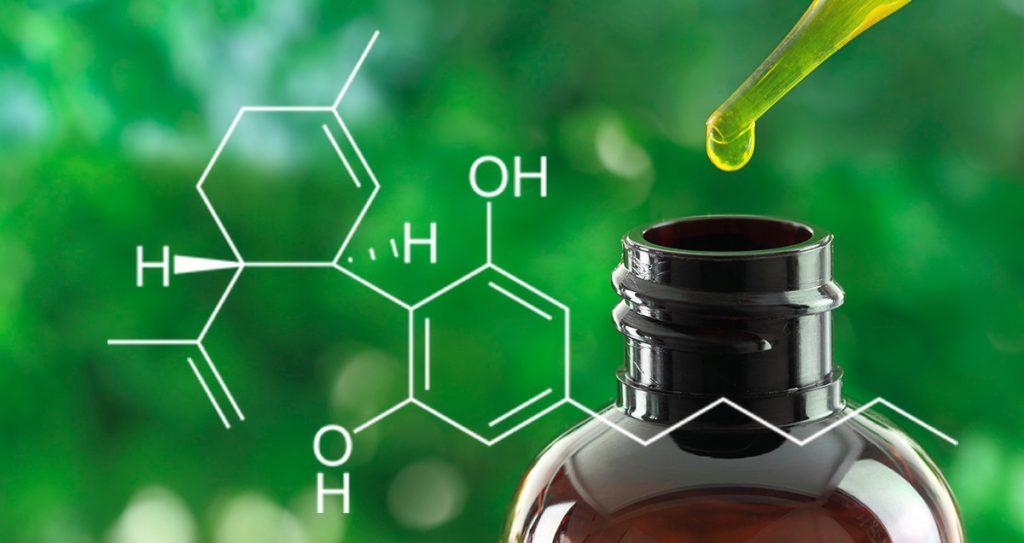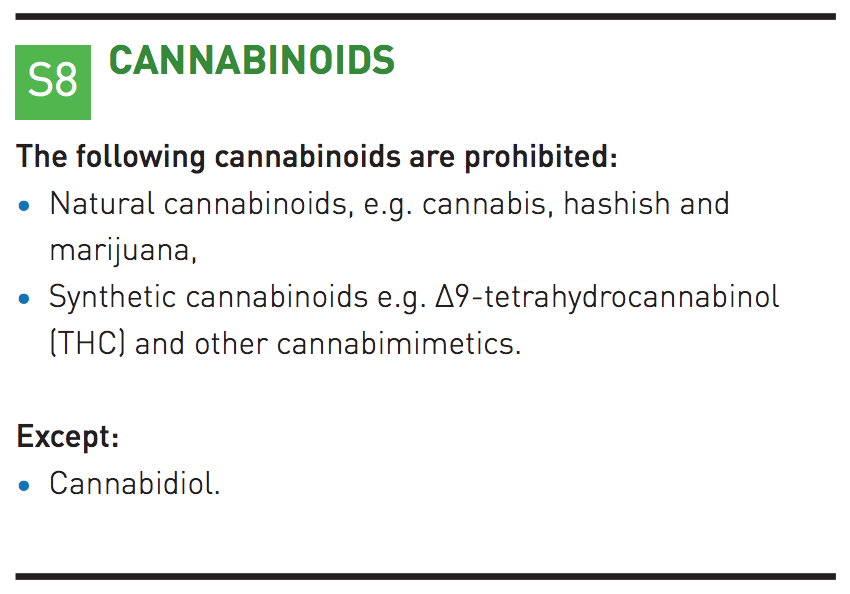
World Anti-Doping Agency (WADA) Removes CBD From 2018 List of Prohibited Substances
Written by Calvin Sun
Cannabidiol, more commonly referred to as CBD, is the non-psychoactive, pain-relieving cannabinoid found in cannabis. In addition to pain relief, CBD offers a variety of other health benefits including reducing inflammation, anti-cancer properties, as well as neuroprotective benefits for athletes who may be prone to traumatic brain injury such as football players and MMA fighters.
Many athletes across a variety of sports have been unable to use CBD because the World Anti-Doping Agency (WADA) currently has listed it as a prohibited substance. However, WADA recently released their updated prohibited list for 2018 and CBD will no longer be prohibited for use by athletes [1]. Unlike opioid pain medications, CBD has not been found to be addictive. In fact, some research has found that CBD can actually help decrease addictive use of marijuana as well as opioids like morphine by blocking the reward pathways that lead to addiction [2,3].

It’s important to note that tetrahydrocannabinol (THC), the better known psychoactive component of cannabis and its derivatives are still on the prohibited list for 2018 [1]. As a result, athletes who wish to use CBD must ensure any products they use don’t contain any THC.
According to the U.S. Anti-Doping Agency (USADA), therapeutic use exemptions will only be considered for legal, FDA-approved uses of THC with prescription products such as Dronabinol and Marinol [4]. WADA’s prohibited list states that natural cannabinoid sources like cannabis, hashish, and marijuana as well as synthetic cannabinoids like Δ9-tetrahydrocannabinol and other cannabimimetics remain prohibited.
While there are a variety of CBD products available on the market, athletes who wish to use CBD should stick to hemp-derived CBD products. The only product that I’m currently aware of that claims to be in compliance with the 2018 WADA standards is RSHO-X hemp oil. The makers of RSHO-X CBD hemp oil claim that their product is 100% THC-free and in compliance with WADA’s testing standards. Be sure to check with your country’s respective doping agency as ultimately you are solely responsible for what you put into your body.
Athletes, if you want to learn more about prohibited substances, I would suggest grabbing a copy of our new eBook, “12 Banned Substances Every Athlete Needs To Know Before Competing”. In this guide, I cover twelve lesser known banned substances that might get you in trouble during the 2018 competition season. Best of all, we’re offering the digital edition of the book completely FREE to all athletes. It’s our way of helping to educate the sporting community and help spare an uninformed individual from accidentally ingesting a banned substance.
References:
1. World Anti-Doping Agency. “Prohibited List: January 2018”. The World Anti-Doping Code International Standard. (https://www.wada-ama.org/sites/default/files/prohibited_list_2018_en.pdf)
2. Shannon, S., Opila-Lehman, J. Cannabidiol Oil for Decreasing Addictive Use of Marijuana: A Case Report. Integr Med. 2015 Dec; 14(6): 31–35.
3. Markos JR, et al. Effects of Cannabidiol on Morphine Conditioned Place Preference in Mice. Planta Med. 2017 Aug 9. doi: 10.1055/s-0043-117838.
4. United States Anti-Doping Agency. “Marijuana and Cannabinoids”. (https://www.usada.org/substances/marijuana-faq/)
Also Check Out…
CBD – Great Green Hope Or Hype?